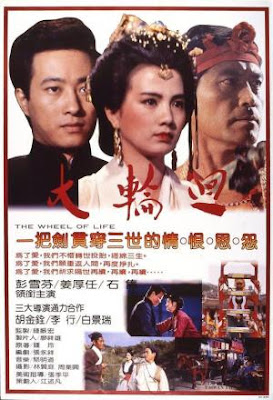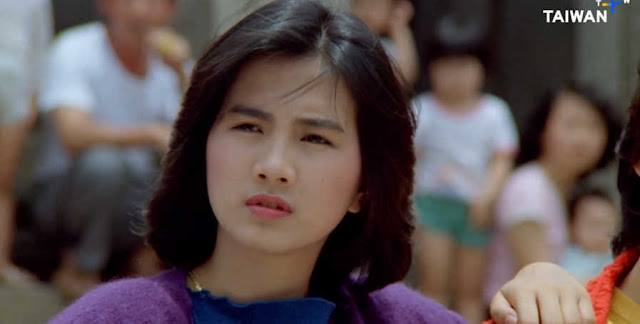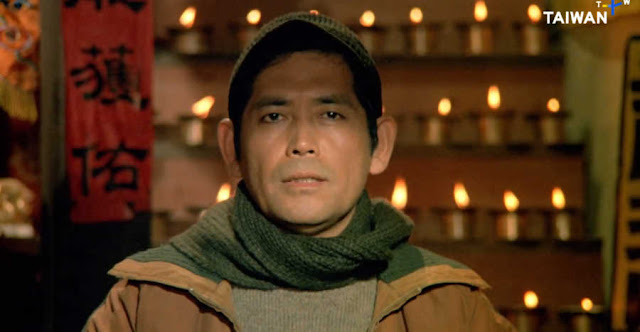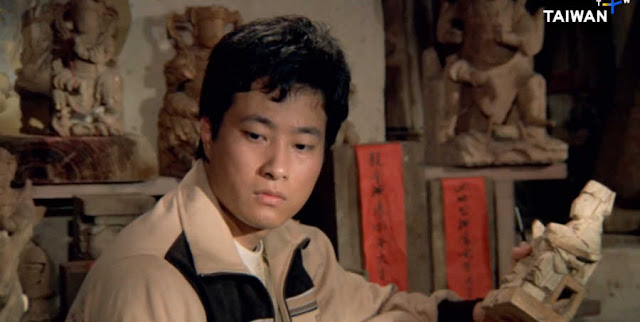This is a film with three parts directed by
three different directors that is connected by the actors and the theme of
reincarnation, fate and tragedy. It is unsaid but it is possible that this
love triangle played out a hundred times before the first story and perhaps
it will play out again after the final story. It is their karma to be always
connected. The three Taiwanese directors are King Hu, Lee Hsing and Pai Ching-jui.
All three were very respected directors but for all three this film was made
towards the end of their careers. Back in 1970 the three had contributed
to a four-part film called Four Moods which included and was initiated by
another great director, Li Han-hsiang. That film had been made to help get
Li out of financial trouble but it failed at the box-office. This one did
as well. I would love to see Four Moods especially for the King Hu section
which is supposed to be very good.
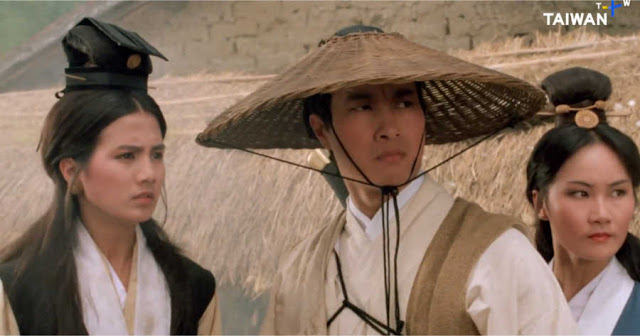
The Wheel of Life was recently restored and has been making the round of
festivals. It is a stunningly beautiful film - ravishing in the set and costume
designs - but I can easily see why it didn't do well. It begins with the
King Hu segment which moves very quickly but the next two are slow dramas
that are interesting but don't have the emotional punch needed. And the film
generally feels old-fashioned for 1983 after the New Wave was breaking in
Hong Kong and directors like Tsui Hark were changing the look and technical
aspects of Wuxia. Even the piece by King Hu which I really liked is very
much a product of an earlier age.
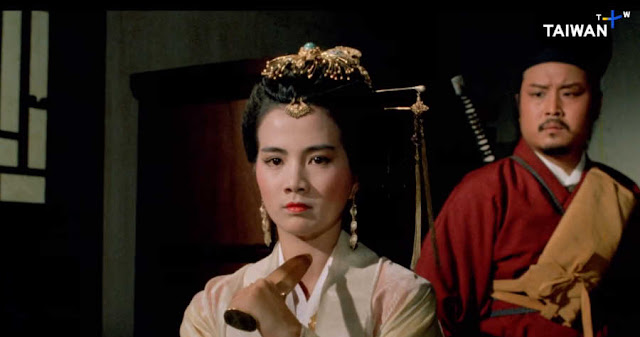
Hu was definitely on the downward slope of his career when he made this.
He only directed fifteen films in his life and I would say seven of them
are classics - the Wuxia films of Come Drink with Me, Dragon Inn, A Touch
of Zen, The Fate of Lee Khan and the Valiant Ones - and then his two more
cerebral spiritual films of Raining in the Mountain and Legend of the Mountain.
Themes of Buddhism were woven into some of his films like A Touch of Zen,
Raining and Legend - so it is not surprising to see him come back to that
in this film. Legend of the Mountain was made in 1979 but since then he had
only made two films that went nowhere - and after this film he only began
Swordsman before it was taken away from him by Tsui Hark and his last film
was Painted Skin in 1993 which I like a lot but it felt behind the times.
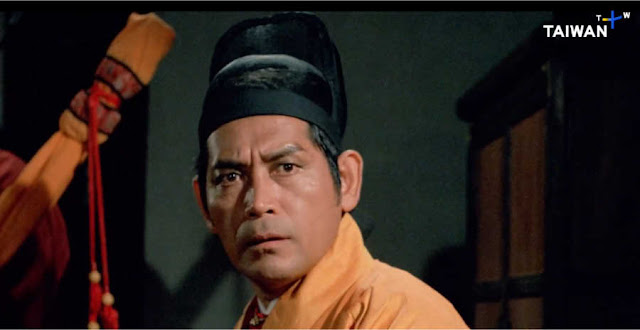
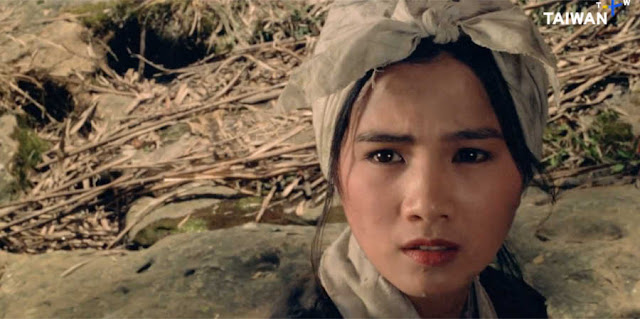
I really enjoyed Hu's piece - maybe contemporary audiences thought it too
old-fashioned but now it just looks wonderful - very much the King Hu style
and story of his Wuxia films (including of course a scene in an inn). It
takes place during the Ming Dynasty and the Imperial Guards are trying to
defeat a group of rebels led by Chiang Hou-jen (I will use the actor's names
as they are in all three segments as different characters and it would get
confusing). At the head of the Imperial Guard is Shih Chun, a favorite actor
of Hu's who was in Dragon Inn, A Touch of Zen, Raining in the Mountain and
Legend of the Mountain. In this he is absolutely ruthless and a great practitioner
of the martial arts. Shih has another agenda in mind as well. He is suppose
to escort Sylvia Peng, the daughter of the Governor to marry the head of
the Imperial Guard. She is in love of course with Chiang. Shih it turns out
is in love with her and escapes with her and his Japanese bodyguard into
the mountains. There are a couple excellent action set pieces. The problem
with his is that it should have been a whole movie. It ends much too suddenly
and leaves you wanting more twists and deceptions. You never really understand
what Shih wants - is it love or is it a brilliant plan to catch the rebels.
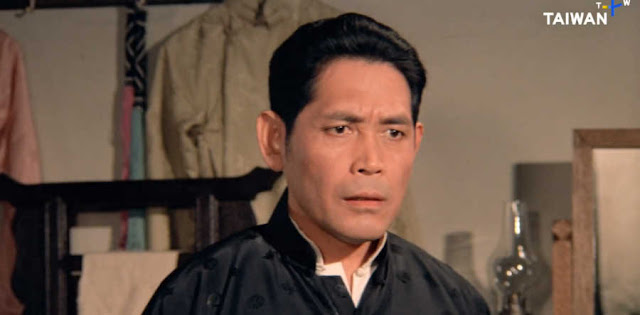
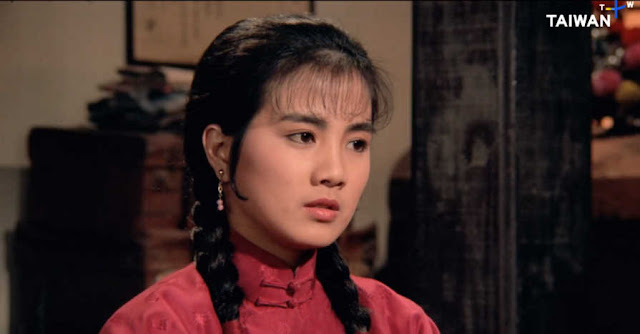
The next segment directed by Lee Hsing occurs a few hundred years later after
the Republic has been established. An opera troupe is down and out and running
out of money. As a last resort the head, Shih Chun, and the top female performer,
Sylvia, go to a wealthy young man who is known for supporting the arts to
ask for financial aid. This is Chiang and as soon as he and Sylvia see one
another they feel they know each other from somewhere else. They quickly
fall in love much to the disapproval of his mother and of Shih who also has
feelings for Sylvia. It is lovely to watch - great cinematography in all
three stories - and the opera performances are fabulous.
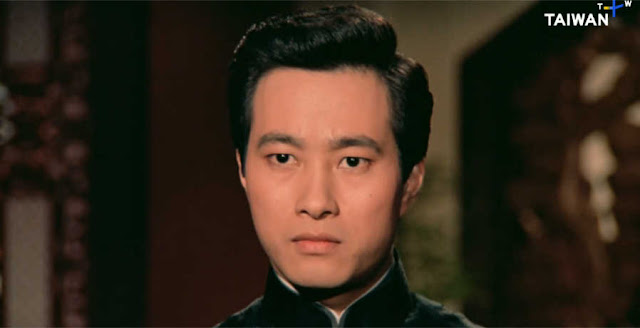
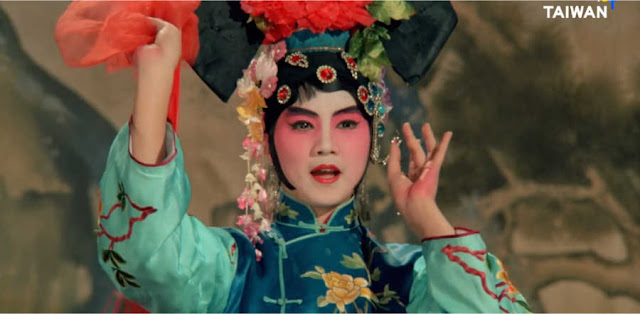
Finally, Pai Ching-jui wraps it up by bringing the story into the present.
Sylvia is part of a modern dance troupe and they visit a remote island to
perform. There she comes into contact with two brothers - Shih who is the
village priest and his younger brother Chiang who is a medium. Again,
the two of them have an eerie feeling that they have met. She puts doubts
into his mind about staying on the island. He begins to want to leave. Shih
wants him to stay. The wheel of life.
I am glad to finally see this. I had a copy from a vhs tape that was unwatchable.
This restored print is gorgeous. It explodes with color and bathes lavishly
in cultural settings. They start off with the best segment and the next two
were progressively less interesting to me but still wonderful to watch just
for their visuals.
